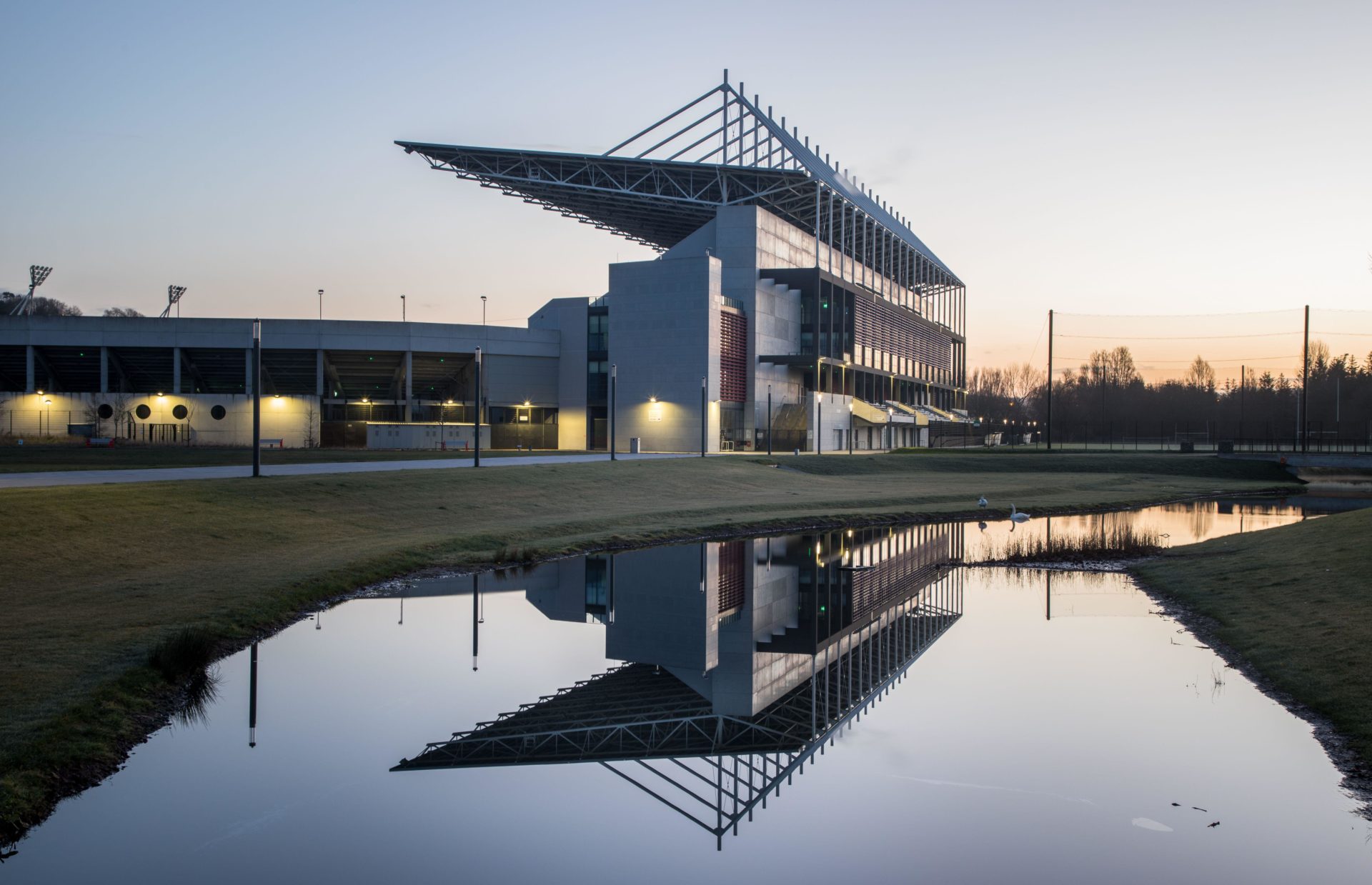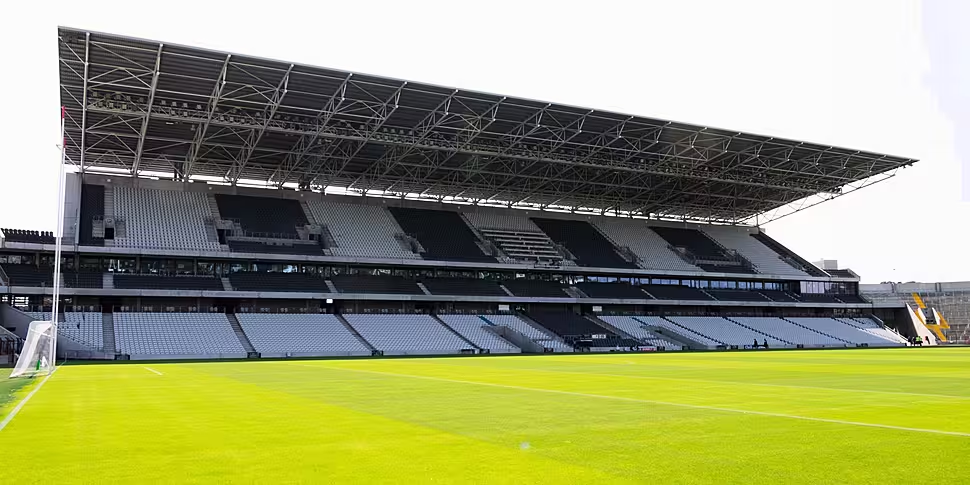Páirc Uí Chaoimh was first opened in 1976 before undergoing a €110m redevelopment in 2015 to become Ireland's fourth largest stadium.
It’s named after former GAA Director General Pádraig Ó Caoimh who, during his 35-year tenure, doubled the number of registered clubs in the country.
On Lunchtime Live today, his grandson Donal Ó Caoimh said he was completely against the potential renaming of Cork’s foremost stadium.
“It’s galling to me that SuperValu is considering making the eradication of my grandfather’s legacy a condition of sponsorship,” he said.
“My grandfather's story inspires young players to dream but the gateway is now open for the sale of our heritage and narrative for profit.
“If you take away the absence of focus on money and corporations from games, you’ve lost what makes the GAA unique.”
 Páirc Uí Chaoimh is reflected by a stream. Image: David Creedon / Alamy Live News
Páirc Uí Chaoimh is reflected by a stream. Image: David Creedon / Alamy Live News
“I understand the importance of raising funds for the sustainability of the GAA but there needs to be sensitivity of history too,” he said.
“My key concern is, if you look at the entire debt that’s being discussed, the €30m, the proposed name change will only cover a small fraction of it.”
County Board
Mr Ó Caoimh criticised the County Board’s handling of the situation.
“The fact that the Cork County Board meeting tonight will debate the proposal behind closed doors for the first time is profoundly undemocratic,” he said.
“The argument that the presence of the media at the meeting would be inappropriate and that they are bound to prevent open and transparent debate is nonsensical.
"This stadium is a part of who we are, it’s in the DNA of our people and it’s woven, not only into our sporting history but into the social fabric of our society.”
Not informed
The Ó Caoimh family were not informed of any potential deal to rename the stadium, he added.
“I heard about the renaming last night like everyone else - through the media,” he said.
“Nobody to my knowledge had contacted anyone in my family.
“From whom I have spoken to, we were not informed and nobody was asked for their thoughts.”
Pádraig Ó Caoimh also fought in the Irish War of Independence which resulted in his imprisonment in 1920 before being released two years later.
You can listen back here:
Main image: Páirc Uí Chaoimh. Image: aphperspective / Alamy Stock Photo









